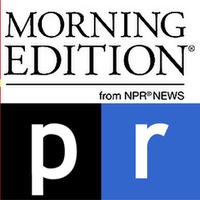Mississippi's Religious Objections Law Sparks Backlash From Other States
RENEE MONTAGNE, HOST:
No sooner had Mississippi's governors signed a religious freedom bill into law than the governor of Vermont and several other governors banned state-funded travel to Mississippi. That new law allows businesses and individuals to refuse service to lesbian, gay, bisexual and transgender people if providing those services would violate a sincerely-held religious or moral belief.
Vermont along with New York and other states had already banned official travel to North Carolina because of a similar law. We reached Vermont Governor Peter Shumlin in the state capitol.
Good morning.
PETER SHUMLIN: Hey, great to be with you.
MONTAGNE: Now, what official activities are covered under this travel ban? Give us some examples.
SHUMLIN: It's all nonessential travel. So as an example, I mentioned to my security person the other morning when he picked me up - hey, we're not doing anymore travel to North Carolina. He said oh, I was just there for a training. And, you know, we have an agricultural conference coming up there shortly.
So listen, this is what we're saying in Vermont. We're not going to use taxpayer money to enhance the economy of North Carolina and Mississippi when they are actively passing laws that discriminate against the civil rights of the people that live there. MONTAGNE: And these trips - you suggest that there are different kinds - what kind of money are they going to be spending?
SHUMLIN: Well, as you probably know, Governor Cuomo's taken similar actions in New York. We hope other businesses and governors will join us. The point is this makes a cumulative difference. You know, when I did a very similar action when Governor Pence of Indiana passed laws that said we're going to discriminate against the LGBTQ community, he very quickly rethought that law and basically struck it from the books. And it's not just governors. It's businesses. You know, PayPal has just made clear that they are going to rethink their 400-job expansion in North Carolina. I applaud them for that. We've found that being open to all people helps our state grow and promotes the kind of culture that we all want to live in. MONTAGNE: In one way, this is sort of a big thing because one state - your state, Vermont, and others are directly trying to change what another state is doing. And I would think that Mississippi's governor would surely argue that this law is not designed to hurt anyone, but rather to protect people who don't want to be forced into doing something that goes against their deeply-held religious beliefs. What do you say to that?
SHUMLIN: I say that that's exactly the same argument that was made by some when we ended slavery. This is no different. And I never thought in my lifetime that I would see this kind of extreme hatred and bigotry being played out in states where governors are literally signing laws that are no different than saying to people of color - you shall not eat here. You shall not drink out of this water fountain.
MONTAGNE: How rare is this ban? Are there other travel bans based on other concerns?
SHUMLIN: No. You know, we really don't boycott other states easily. But I just feel very strongly that the only way you right a wrong is by standing up and making decisions that aren't necessarily going to be popular but are going to raise the level of consciousness. MONTAGNE: And finally, what would it take for your state - for Vermont to lift the nonessential travel bans on Mississippi and North Carolina?
SHUMLIN: My hope is that they'll do exactly what Governor Pence did in Indiana - undo their actions and join the rest of America in understanding that we all thrive together when we end discrimination, when we end hatred, when we all are treated with dignity and respect. MONTAGNE: Vermont's Democratic Governor Peter Shumlin, thank you so much for joining us. SHUMLIN: Hey, thanks for having me, Renee.
MONTAGNE: And NPR did reach out to the governors of Mississippi and North Carolina. Both declined a request for an interview.

